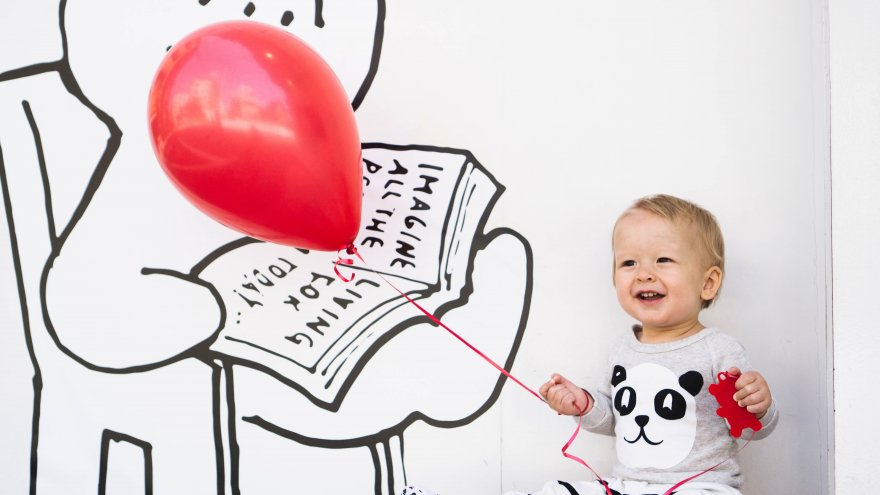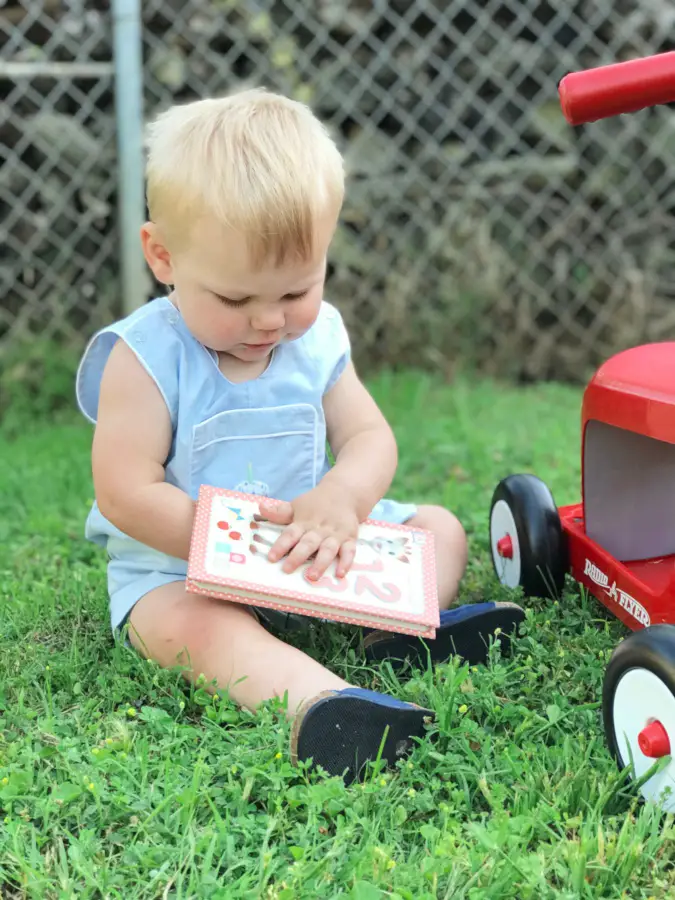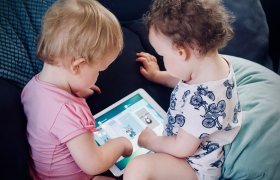Ways to Aid your Baby’s Language Development

Talking to your child starts the process of supporting their language development. You can sit and ponder the thought about what would your baby say if he or she could talk to you? The key is to keep talking and proper enunciation is very important in helping your infant to understand what you are saying. Your baby can hear your voice from the womb and that might be the reason he or she starts looking for you the moment they are born. Do you remember the first eye contact you had with your baby? This was an extremely exciting and bonding moment. Your voice plays an important key in the development of your baby’s language. The first chance you hold your baby close, start vocalizing and have the other members of your family talk to your baby as well. Children learn much quicker from having older siblings because they have the ability to develop their own language that they understand even if you don’t. You might wonder what they are laughing about but a baby sees the world a bit differently than you do because everything is so new to them!
Here are 12 different ways that you can help support the language development for your infant. This is what he or she might say to you if they could talk:
I am pointing at something, and can you tell me what this is?
Your infant is saying and while you are explaining this object, could you look at it and point to it too?
Could you use a gesture with a word with this so I can say it too?
Your infant might be saying if it’s meal time, smack your lips so I can copy you and tell you when I am hungry.
Talk to me constantly about what you are doing.
Tell me what happens each step of the way so I will know what to expect and understand.
Talk to me about what I am doing as your infant by using descriptive words so I may understand my actions and feelings.
Please help me learn those words for emotions.
Can we take turns talking back and forth with each other?
Will you listen to what I am saying and copy my coos and babbles? When I get a bit older, you can answer my questions and ask your own. I like simple questions that don’t have right or wrong answers.
Can you help me to make larger sentences?
If I say “2 dogs”, can you say, “Well honey you have 2 dogs on your shirt!”
Sing with me!
It’s much easier for me as a baby to learn words in my songs. You can teach me rhymes, sing the ABC song, the colors of my clothes and the names of my friends, even if they are just pretend.
Let’s go to the library mommy!
“You read me” books, help me decide how to learn how to read? Let me sound out the words on board books. Can we check out a few thrift stores? Maybe we can find some board books and clean them up. You can put some tabs on the pages so I may turn them easier.
Let’s make books about our family.
When I see myself in our family book, these books will teach me to learn about things in my life.
Show me words on items.
When you point out certain words on different items, this will help me to understand how the print on the word and the speech connect together.
Can we have fun when we learn together?
If I ask you what a shape is and it turns out to be the letter of the alphabet, could you tell me what letter I made? I don’t like to be asked what’s this?
I need time to learn and explore.
There is no rush to learn colors, letters and the names of everything because I am just like any other baby. I will learn all of these things in my own time.
These 12 steps are pretend of course but these are some good steps to follow when you are thinking about what your baby wants from you in regards to learning language development. You can understand that these ideas are great to help your baby interact with the outdoors and meeting different friends when you choose to explore different and exciting things your baby will need to know as he or she prepares for preschool and social interaction.
 Remember babies start to communicate the day they are born and before school begins. There is a critical area of rapid development when an infant’s brain is best able to understand speech. As your baby grows, the art of communication becomes more complex and they learn to understand and use language to express themselves. This is how they learn how to connect with others.
Remember babies start to communicate the day they are born and before school begins. There is a critical area of rapid development when an infant’s brain is best able to understand speech. As your baby grows, the art of communication becomes more complex and they learn to understand and use language to express themselves. This is how they learn how to connect with others.
Language and communication skills are important for your child’s success in school and beyond into those adult years. There is the ability to understand which is “receptive language” and the ability to express, “ expressive language. Expressive language is the type of language that your baby uses with words, expressions, and gestures. It’s important to have your child learn and use strong language and communication skills so they are more encouraged to go to school and learn. In addition, these children are more likely to learn reading and develop higher levels of academic achievements in school. The first year of life lays the foundation for learning. The social activities that children experience with adults influence how they learn and grow. This makes it easier for children to be taught by teachers who will support the growth of your child. This growth of language is especially important because your child is developing communication skills as well.
Past research tells parents that teachers who provide children with higher levels of language stimulations during their formative years have created better language skills amongst children. Teachers engage by asking questions and positive talking so children may learn and broaden their vocabulary. Parents and teachers promote more high-quality language interactions with children so they may continue to grow in language and communication.
Remember to talk, talk, talk, so parent and child interactions can benefit children from a variety of cultural and language backgrounds. Some children are dual language learners who can feel isolated at times because of their difficulty in communicating simple wants and needs. Parents and teachers should keep remembering that each child learns and grows at a different rate. There are a number of factors to take into consideration while wondering if your child is up to the speed of their age group. The two most important factors are personality and age. Many parents tend to hold their August babies behind for one year because they think they are not ready for kindergarten. By talking, labeling, describing objects, mixing up grammar, tuning in, reading the same book over and over, using props, creating music and signs, parents can prepare their summer babies for the school years so they are on track when the child’s teacher takes over.




